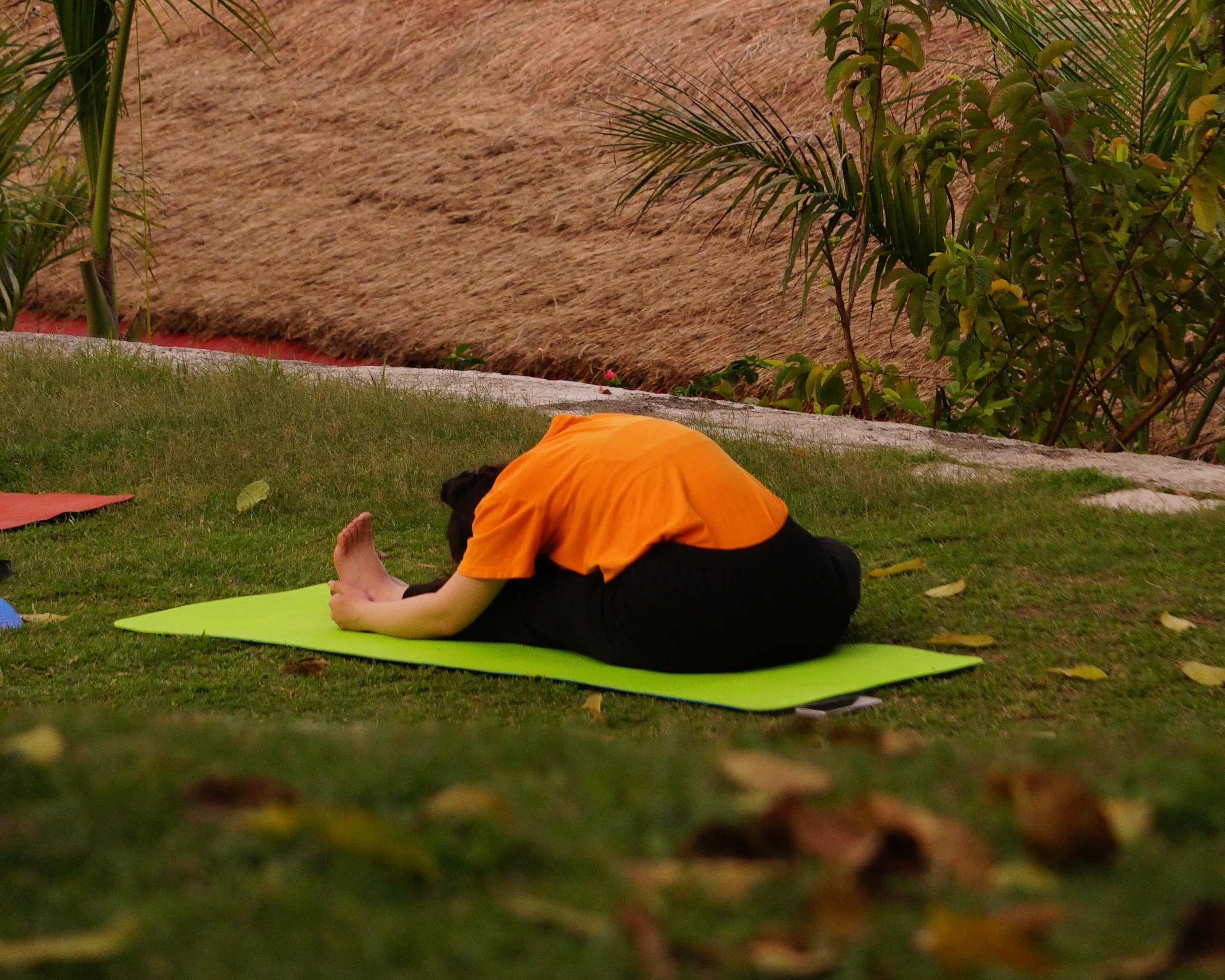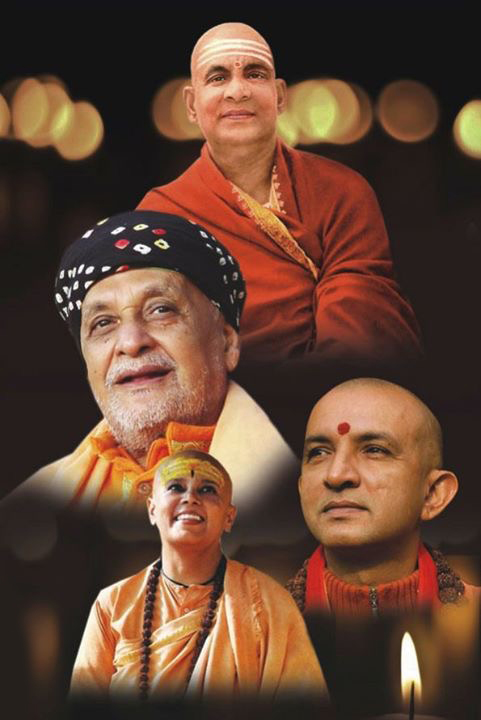
You want to get away from all the hustle and bustle and dive into a space of complete peace. A meditation retreat is a place where you can slow down, breathe, and reconnect with yourself.
The meditation retreat gives you a quiet environment to focus on your inner world away from distractions. But many of you are wondering how this meditation retreat works and what actually happens in the meditation practice. So, to clarify everything, we are here to help you out with our detailed information.
All mediation retreats are different, each designed to suit various needs and preferences. Some focus on silence and deep self-reflection, while others include guided sessions, group discussions, or spiritual teachings. Understanding the different types can help you choose the one that best fits your goals and comfort level.
Vipassana, meaning "insight" in Pali, is a silent meditation practice focused on self-awareness through deep observation. These retreats usually last from seven to ten days, during which participants follow strict rules: no speaking, reading, writing, or using electronic devices. The aim is to quiet external influences and turn inward, allowing for profound self-discovery and mental clarity.
Zen retreats, also known as Sesshin, emphasize structure and discipline. Participants engage in a combination of seated meditation (zazen) and walking meditation (kinhin). These retreats often follow a strict schedule, with periods of silence and simple activities like mindful eating and daily chores, promoting a deep sense of presence and awareness.
Mindfulness retreats focus on present-moment awareness and self-compassion. These retreats often include guided meditations, group discussions, and workshops that teach practical mindfulness techniques. They are suitable for beginners as well as experienced meditators looking to integrate mindfulness into their daily lives.
Compassion-based meditation retreats center around practices such as loving-kindness (Metta) meditation. These retreats help individuals cultivate empathy, emotional balance, and a deeper sense of connection with themselves and others. They are especially beneficial for those looking to heal from emotional wounds or reduce feelings of anger and resentment.
Spiritual retreats provide a space for individuals to deepen their spiritual path, whether within a specific tradition or through personal exploration. They are often rooted in Buddhist, Christian, Hindu, or Sufi teachings and may include prayers, chanting, sacred rituals, and scripture readings. Some retreats welcome people from different faiths, offering a more inclusive spiritual experience.
While the schedule may vary depending on the retreat type, most follow a structured daily routine designed to promote mindfulness and inner peace. A typical day might include:
Simple diet: Many retreats offer vegetarian or vegan meals to support a light and mindful eating experience.
Limited social interaction: Conversations and physical contact with other participants may be minimized to encourage solitude and self-reflection.
Attending a meditation retreat can be a life-changing experience, offering powerful benefits for your mind, emotions, and overall well-being. Here’s how: Clearer Mind & Less Stress – Taking a break from daily responsibilities gives your mind the space to slow down, relax, and let go of stress and anxiety. Better Understanding of Yourself – Without constant distractions, you have the chance to reflect on your thoughts, emotions, and habits, helping you grow and make positive changes. Stronger Focus & Mindfulness – Regular meditation at a retreat helps train your mind to stay present, making it easier to focus on tasks and enjoy life more fully. Emotional Healing & Inner Peace – Many retreats include compassion-based practices that help you process emotions, let go of past hurts, and cultivate a sense of calm and balance.
While meditation retreats can be transformative, they can also be challenging, especially for first-time participants. Some common difficulties include: Adjusting to Silence and Solitude – Many people find it difficult to be without social interactions and external distractions. Physical Discomfort – Long hours of meditation can cause stiffness and discomfort, requiring patience and adjustment. Emotional Unfolding – Suppressed emotions may surface, leading to moments of vulnerability and self-reflection. Strict Schedules – The structured nature of retreats can feel overwhelming at first, but it helps establish discipline and routine.
When selecting a meditation retreat, consider the following factors: Location and Duration: Some retreats take place in remote natural settings, while others are in urban centers. Choose one that aligns with your comfort level and availability. Type of Meditation Practice: Whether you prefer silent introspection, guided mindfulness, or spiritual teachings, select a retreat that suits your goals. Cost and Accessibility: Some retreats are donation-based, while others require a fee. Research pricing and accommodations before committing. Experience Level: Some retreats cater to beginners, while others require prior meditation experience.
A meditation retreat is a chance to slow down, clear your mind, and reconnect with yourself. While it may be challenging at times, the rewards, greater peace, focus, and self-awareness, make it genuinely worthwhile. Choosing the right retreat can help you relax, grow, and find balance.
If you're looking for a peaceful space to deepen your practice, Atma Shree Yoga Retreat is here for you. With expert guidance and a calming environment, we help you find clarity and inner peace.
What should I expect at a meditation retreat?
Meditation retreats typically involve guided or silent meditation sessions, mindfulness activities, and periods of self-reflection. Expect a structured daily schedule, simple meals, and minimal distractions like phones or social interactions.
Do I need prior meditation experience to attend a retreat?
No, many retreats welcome beginners and provide guidance. However, some advanced retreats require prior experience, so it's best to check before booking.
What should I bring to a meditation retreat?
Comfortable clothing, a meditation cushion (if needed), a journal, water bottle, toiletries, and any personal essentials. Some retreats may have specific guidelines, so check their recommendations.
Will I have to follow a strict schedule?
Most retreats have a structured routine with set times for meditation, meals, and rest. While it may feel strict at first, it helps create a peaceful and focused environment.
Can I use my phone during the retreat?
Many retreats encourage digital detox and ask participants to avoid phones and other devices to immerse in the experience fully. Some may allow limited use in designated areas.
What are the benefits of attending a meditation retreat?
A retreat can help reduce stress, improve focus, enhance emotional well-being, and deepen self-awareness. It provides a break from daily distractions, allowing for personal growth and relaxation.
